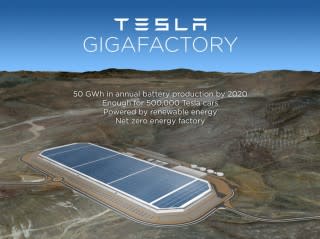Nickel-Metal-Hydride Batteries For Electric Cars? Energy Density Can Rise 10-Fold: Researchers
The division is pretty clear: nickel-metal-hydride batteries are for use only in hybrids--at least those from Toyota, which has used more of the batteries than any other maker by far.
Lithium-ion cells, on the other hands, are the only ones with sufficient energy density to be used in the much larger packs of battery-electric and plug-in hybrid vehicles.
That's how it's been for most of a decade.
DON'T MISS: Tesla Gigafactory: New Photos Show Progress On Battery Plant In Nevada
But suppose researchers could radically boost the energy density of old-fashioned nickel-metal-hydride cells?
That might change the equation substantially--and that's exactly what research by chemical supplier BASF aims to do.
In recent article in Technology Review, author Kevin Bullis dangled the prospect of NiMH cells with as much as 10 times today's energy density--making them practical for use in plug-in cars of all sorts.

The goal is a cost per kilowatt-hour of less than $150, better than even the rumored costs of high-volume commodity-format cells to be produced by Panasonic and Tesla Motors at the Nevada gigafactory now under construction.
The BASF research centers on changes to the microstructure of the nickel-metal electrode, making it more durable and hence requiring less of it to be used for the same power production.
Its researchers have already produced NiMH cells with double the energy density of today's cells, bringing them to 140 watt-hours per kilogram.
ALSO SEE: Solid-State Batteries For Electric Cars: 'Great Potential,' VW CEO Says

 Yahoo Autos
Yahoo Autos 
